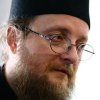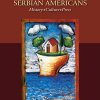As an abbot of the XIV century Visoki Dečani Monastery, the first inscribed UNESCO World heritage site in Kosovo I would like to take this opportunity to elaborate the reasons of our concern regarding the possible Kosovo’s admission to UNESCO.
As Kosovo has been a spiritual center of the Serbian Orthodox Church since XIII century with important movable and immovable cultural goods (frescoes, icons, ancient books etc), our primary concern has always been to protect these holy sites and the treasures which we have inherited. It is exactly due to danger we’ve been facing in the years after the Kosovo conflict in 1999 that our UNESCO World Heritage Sites were also inscribed in the list of the World Heritage in Danger.
Regrettably, unlike other wars in Former Yugoslavia, particularly the Bosnian war, where vandalism against holy sites ceased after the end of hostilities that were much worse than in Kosovo, 150 Serbian Orthodox Churches and nearly 400 Orthodox Christian cemeteries in Kosovo have been destroyed or seriously damaged since the beginning of the UN peace mission in Kosovo in June 1999. Only in two days in March 2004, 34 of our holy sites were burned by thousands of Kosovo Albanian rioters. We had no help from then Kosovo leaders, many of whom are now on leading positions in Kosovo Government. Our only protection were international peacekeeping troops of KFOR which protected our most important shrines from destruction. My monastery, a XIV century site has been attacked with grenades four times since the end of Kosovo war and that is the reason we still remain under the KFOR protection. Frequent vandal acts, verbal provocations, biased Kosovo Albanian media writings, insulting graffiti including those praising ISIL in 2014, amid a general atmosphere of intolerance, have made it necessary for our most important sites in Kosovo still remain under a special security regime by police and International peacekeepers.
Of course, one may say that attacks on our holy sites are the past now. However, acts of vandalism against our churches and cemeteries are still continuing and so far Kosovo authorities have not been able to stop them and bring to justice perpetrators of these vandal acts amid a pervading atmosphere of ethnic discrimination. Several days ago two more Serbian churches were burglarized, hardly any Serbian cemetery in Albanian majority part of Kosovo is without broken crosses and tombstones, deplorable scenes of post-war vandalism. We are particularly hurt by attempts of some Kosovo Albanian intellectuals who actively work on historical revisionism and are trying to change the identity of our sites although numerous international authors have written extensively about these pearls of medieval and Christian tradition built by Serbian medieval kings and important for all people who respect culture. Many young Albanians learn in their schools that we, Serbian monks who have been living here for hundreds of years, occupied what they call ethnic Albanian monuments and sites, which is historically preposterous and incites ethnic and religious intolerance. In such an atmosphere international presence and firm international guarantees are indispensable for our normal life and future.
We are seriously concerned with Kosovo UNESCO bid, not because we are against promotion of culture and education in Kosovo, quite on the contrary, but primarily because we find it hard to trust Kosovo’s authorities and their professional capacity to properly care for our sites. Striking discrepancy between Priština’s official statements pledging us full protection in front of UNESCO and international media on one hand, and their latest utterly discriminative draft law on Culture and Cultural Strategy of Kosovo, on the other, makes it clear that Kosovo authorities sooner or later may misuse their UNESCO membership to forward their political agenda and the nation-building process of Kosovo which we perceive as the second ethnic Albanian state in Europe. In this context, instead of being a mechanism of protection UNESCO membership of Kosovo may easily become a mechanism of cultural repression.
We as a Church, are not motivated by political reasons and have so far made utmost efforts to cooperate with Kosovo institutions under the international mediation, always insisting how important it is to ensure Serbian experts on our medieval heritage to continue their work in Kosovo which they have done for decades. The rejection of this concept by Priština led to a cessation of the work of the Reconstruction Committee in 2010. After the recent draft law on cultural heritage which envisaged proclaiming of all heritage in Kosovo the property of Kosovo Government, an utterly anachronistic model, as well as other discriminative decisions we are no longer able to have confidence in Kosovo authorities. The picture of Kosovo which is being promoted in the world is so much remote from the everyday reality we experience in our lives. At the same time, our heritage is not only the heritage of our Church but is of immense significance to Serbian people and Serbia as it constitutes the very heart of our cultural and national identity. Our Church has protected and cherished our heritage in this area throughout the Ottoman rule and our holy sites played an essential role in preserving our religious and cultural identity in previous centuries. This all makes the issue of our heritage in Kosovo a very sensitive one. Although it is not a political issue per se it is burdened with serious political ramifications which urgently requests a particular mechanism of protection under the neutral and international supervision. Many positive steps that have been taken on our behalf in the previous years were initiated by the international presence in Kosovo and without it we have no illusion that Kosovo institutions may take a completely different approach.
That is why our Church believes that Kosovo’s membership in UNESCO should be postponed until Belgrade and Pristina, within the EU sponsored dialog in Brussels, clearly define mechanisms of institutional long-term protection of Serbian Orthodox holy sites in Kosovo. This should be done in order to avoid our holy sites become a target of nationalists and historical revisionists. A positive initial step in that direction might be renaming our sites by UNESCO into “Serbian Orthodox Medieval Monuments in Kosovo” (instead of the current name “Medieval monuments in Kosovo”) which would give us more reassurance of protection of our religious identity. A similar example of a more precise ethnic and religious identification are Armenian monastic ensembles in Iran. Our all four UNESCO sites in Kosovo are not museums but Serbian Orthodox places of worship with living monastic communities and congregation which makes their effective protection essential for the freedom of our religion.
The Brussels dialog between Belgrade and Priština is a crucially important process, the goal of which is to build confidence and resolve all practical problems our communities are facing. After all, both Belgrade and Pristina look forward towards European future of the region and we as a Church strongly believe that our Serbian Orthodox heritage in Kosovo should not be a stumbling block of political confrontation but rather a bridge of cooperation between communities and all peoples of good will that are looking for their common European future in the region. That is exactly the true meaning of religious and cultural sites anywhere in the world. Our sites, although they are owned by Serbian Orthodox Church, are nevertheless important cultural monuments for all in the Balkans, Europe and the world.
Our Church firmly looks into future and we know that many Albanians and Serbs in Kosovo cannot forget the wounds of the recent past. As my monastery sheltered Kosovo Albanian refugees who suffered during the war in 1999, we know so well how difficult it is for many Serb refugees that had to flee after the Kosovo war and are not able to return to Kosovo 16 years after the end of hostilities. We still have many churches that lie in ruins which need to be rebuilt, many cemeteries to repair and help everybody in Kosovo and the wider region to live in peace and mutual understanding. That is why we remain open for dialog. This is exactly the reason why we are concerned that any decision which would discourage the prospects of that dialog will be detrimental for all. The firm rejection of our request and that of Serbia by Kosovo authorities to address the issue of Serbian Orthodox heritage in Brussels, which was previously particularly taken care of by President Ahtisaari’s plan, is a serious matter of concern and a step back in building confidence. Kosovo laws are far from adequate and precise and may be a matter of serious changes in future. That is why we believe that the long-term future of our sites needs to be regulated on a higher level with clear international guarantees prior to any possible change of their UNESCO status.
With this message I would like to express opinion of my Church that in such a politically complicated situation which can affect future of our sites and our lives we believe that UNESCO should postpone the decision on eventual Kosovo’s membership in this organization and strongly recommend a dialog on heritage within the Brussels process as the best way forward to reach a mutually acceptable settlement which would ensure the best protection of our World heritage sites in Kosovo. We would like our holy sites to be places of reconciliation but to achieve that we need our tradition and culture be adequately respected and recognized. We have always worked on an inclusive character of our sites, as houses of God open for all but at the same time we cannot allow them become a prey of historical revisionism and discriminating laws that deny our most vital interests that need to be internationally granted and observed.
Archimandrite Sava (Janjic)
Abbot of Decani Monastery
November 2, 2015





